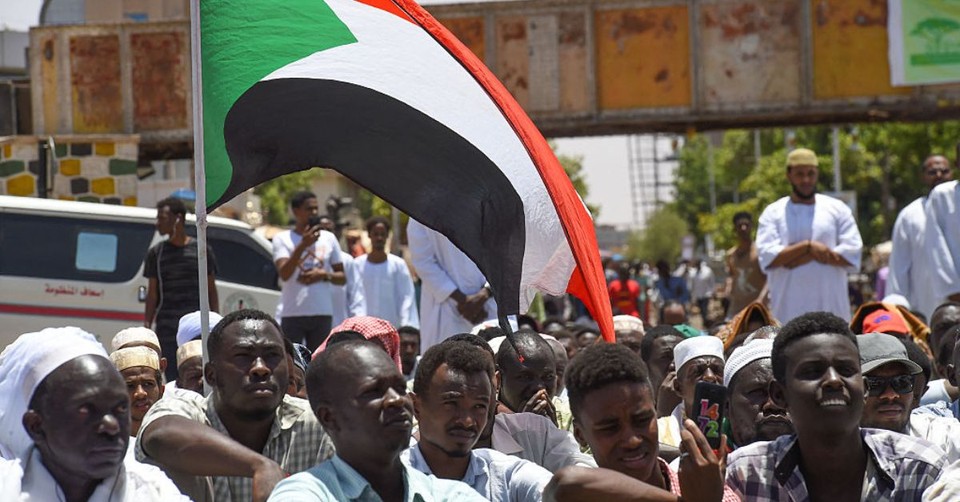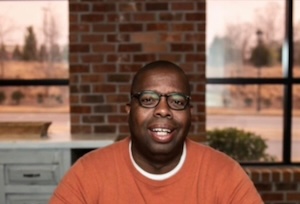U.S. Church Urged to Stand with Suffering Sudanese Christians

Sudanese Christians face immense challenges amidst the country's civil war, enduring both the general suffering caused by the war and targeted religious persecution as churches are destroyed and converts face threats of violence. Christian Solidarity International (CSI) has worked in Sudan for many decades and has freed over 160,000 slaves in South Sudan. According to Kamal Fahmi, who founded Set My People Free, despite many challenges, Sudan's Christians have shown "remarkable resilience." In a sit-down interview with Crosswalk Headlines, Deputy Director of Public Policy/Communications Abi McDougal explains the need for American Christians to know and understand the plight of their Sudanese Brother and Sisters in Christ.
Crosswalk Headlines: What ministry work does Christian Solidarity International do?
Abi McDougal: Christian Solidarity International is an NGO. This nonprofit organization is dedicated to promoting religious liberty and human dignity. We partner with local churches and Christian organizations in contexts facing persecution worldwide. CSI has partners in Syria, Pakistan, and Nigeria, and they tell us what they need and what they're already doing. We partner with them to help meet those needs and learn how to advocate for what's happening internationally.
CWH: Do you operate as a connector between your partners and the local church?
AM: Yes. We are the connection point; we have donors who support us through giving, praying, or speaking out on the issues. We serve as that bridge, and then churches or individuals in the US and other affiliate countries in Europe and South Korea join in being part of that global body of Christ. For example, what does it mean to say that when one part of the body suffers, the whole body suffers? What does that actually look like in practice? How do we follow Paul's admonition and really live that out?
CWH: How long have you been with the organization?
AM: I've been with the organization for a little under a year. The organization started in Switzerland in the 1970s with prayer marches and vigils held in response to Soviet oppression. The organization was born because there was so much movement and because it seemed like the hand of God was working in that so much.
CWH: What is going on in Sudan?
AM: CSI has been connected with Sudan and the crises happening for Christians there since the 1990s, so actually 30 years ago. CSI collaborated with people who are now in South Sudan to help address the slave trading issue that was happening by Jihadist and Islamist groups coming from the north. Since then, we've been connected to the issue. And now, of course, South Sudan has been an independent country since 2011, but those tensions are still there. In Sudan right now, along the border with South Sudan, most of the Christians from the north have fled south to that border area to places called the Nuba Mountains, which is one place, and then along the Blue Nile. There are these refugee camps, these displacement camps. They're not refugees since they're still within the borders. These groups that have been displaced have all come trying to find a place to get away from the conflict. Often, their lands have been taken, and they have lost their homes and everything they have. They're in a crisis where the safe regions are becoming overcrowded, and because of climate change and less land and farming area to work, there's a lack of food. And so, really, the urgent need that we hear right now is for food.
CWH: What can American Christians do?
AM: Always pray! Prayer is central and is part of God's hand moving in our mission, and the body of Christ standing as one, for various countries will put out prayer updates. It's not prayer in isolation, right? It's prayer in action. People in the US can give and support, and that supports the direct aid of directly getting food to people who need it, which also supports raising awareness of the issue internationally. They can also join that effort by just sharing the information, talking about it, raising it as a priority in their communities with the government, and contacting their representatives and politicians. There's so much room for change and for making a difference.
Photo Credit: ©Getty Images/MOHAMED EL-SHAHED/Contributor

Originally published August 05, 2025.







